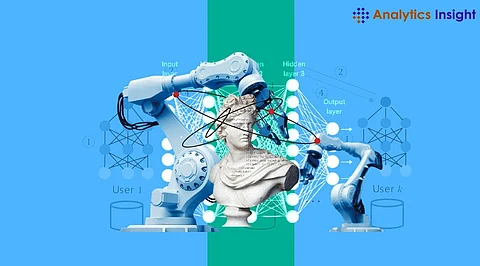

Machine learning (ML) could go through a shift with test-driven development (TDD) which promotes the creation of models that are accurate, reliable, and maintainable. Software engineering practice called TDD requires starting with tests before even any other work has been done. The use of this technique with machine learning, however, helps to build models, and they, therefore, meet the highest standard quality criteria and are without any error margin. In this article, we'll examine 7 test-driven strategies every ML enthusiast should know.
Data integrity is as essential to any ML model as A itself is. Unit testing for the data pipelines improves the quality and straightforwardness of our data during the movement of the data flow. Checking data reliability at each pipeline level, from extraction to loading and transformation, is the way to find out any problems on time so as not to contribute to the inaccurate data that becomes the basis for model creation.
The ML models consist of numerous interrelated components, which contributes to their complexity. In the ML strategies every ML enthusiast should know, Integration testing plays a vital role in confirming that the interfaces between these components, i.e., data preprocessing, feature selection, and learning model/algorithm, function correctly without any errors or discrepancies. The integration of these tests for models' robustness minimizes the chances of their breakdown or occurrence during their full function.
Developing an ML model is paramount for the ML lifecycle. However, it can also lead to behaviors or introduce bugs in the code. Through regression testing, unintentional deviations from the established specifications can be detected. Thus, errors that the introduction of new features might cause can be prevented.
Performance testing evaluates the model's efficiency, which is essential in machine learning strategies and is one among those that every ML enthusiast should know. This testing is mainly used in production environments where a lack of speed or under-usage of resources may destroy the model. It measures the model's reaction times and resource utilization under different loads to ensure that the model can scale without much hassle to comprehend demand.
The most concerned testing with a model's ability to generalize is Validation testing. It uses a separate set of data to evaluate the model's predictive capabilities and a unique voice to address new, which, in turn, demonstrates its value. One of the benefits of validation testing is that it prevents overfitting and guarantees that the model remains robust over various scenarios since it is not affected by the biased outcome of the training data.
However, in the long term, adoption by end users will increase the extent of an ML model's success. Engineers do user acceptance testing to make Procella interact with real users under controlled settings for feedback on its performance and usability. This feedback plays a vital role in the readjustment of the model, detailing users' requirements.
Continual evaluation and upgrade of models using a continuous test validation approach has become a routine practice in the ML workflow. Testing is responsible for putting different types of daily assessments into the CI/CD pipeline, so there is no doubt that models evolve toward the project goals and standards.
The implementation of these 7 test-driven strategies every ML enthusiast should know would create ML models that address the solution not only in terms of accuracy but also in terms of robustness and user-friendliness. However, though initiating a test environment is a considerable investment, in the long term, the outcomes, which include fewer errors, enhanced performance, and disaster-free maintenance, are acquirements that are well worth the effort. As time progresses, the future of Machine Learning becomes more and more sophisticated; this must-have approach becomes an indispensable tool for every practitioner who strives for perfection.
Join our WhatsApp Channel to get the latest news, exclusives and videos on WhatsApp
_____________
Disclaimer: Analytics Insight does not provide financial advice or guidance. Also note that the cryptocurrencies mentioned/listed on the website could potentially be scams, i.e. designed to induce you to invest financial resources that may be lost forever and not be recoverable once investments are made. You are responsible for conducting your own research (DYOR) before making any investments. Read more here.
